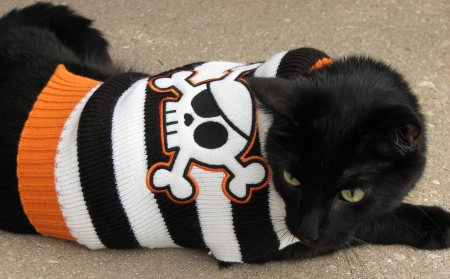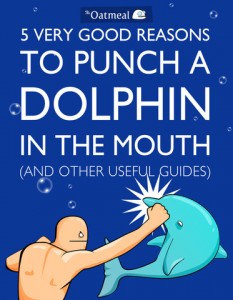I read comics. Part of the reason why I do, is because I like reading them. The other reason why I do, is because I feel it’s my job as a writer to explore as many written mediums as possible. The juxtaposition of text and artwork, combined with using “only” the necessary words to tell a story, is a skill unto itself. Comic script writing, like any other form, is in its own category and is not mastered by everyone. For the most part, my storytelling (and reading) tastes run dark, but not gory, or humorous. Give me a hero (iconic or not) who changes as a result of what happens and you’ll have a fan for life. Hmm… Maybe that’s why I prefer Batman to Superman. *evil grin* Although… Hrmmm…
I wrote about the trouble with female superheroes a while back, and then recommended a character who’d be great for a stand-alone superheroine movie or two. And then I came across this article about female comic characters in pants and read quite a bit about the re-launch of DC’s line. Here’s an article about Catwoman’s boobs and another where DC pledges to hire more women writers.
You get the picture.
The thing is, I don’t feel any comic book company sets out to be malicious or put out a crappy product for its readers. I do, however, feel that comic books have a high cost of production and that affects the end result. On one comic, a penciller, inker, colorist, letterer, writer, and editor could be listed in the credits. Unless (and this has happened) an artist has taken on multiple roles by themselves. When DC announced that they’d be re-launching all fifty-two lines at the same time? I thought it was aggressive on their part from a creative aspect. That’s not just fifty-two comics, that’s fifty-two separate teams of people. While some of those teammates may overlap, from DC’s perspective they’re looking at deadlines and going toward people with experience.
Hence, the current predicament in comics lacking female writers, if a company hires based on experience. From the people I’ve talked to? That’s usually the case.
What I’ve found, is that because comics are so heavily focused on artists, writers like myself who have an idea for a comic need to find an artist to do a spec issue. To do that, I’d have to go to an artist and say: “Hey, I’ve got this great story. Would you do X amount of panels for free? No guarantee the publisher will pick up the idea, unfortunately.”
So, step one? I’d have to ask an artist to work for free. I’m to the point in my career where I won’t do that. I’m sorry, but in my experiences if you want something done right? You should pay for it. And again, there’s also the pencilling/inking/coloring/lettering that needs to be done. So it’s not just one job, it’s five. Let’s see… Well, step two requires me to make sure I know how to write a comic book script. There’s books on the subject, so I’d have to teach myself on that, unless I take a class or something.
Next, I’d have to get the spec comic printed. Again, it would be an investment specifically designed to get “that” comic published. I’m not talking about a portfolio of work that isn’t relevant to what I’m selling. I’m specifically talking about a single issue that’s catered to what that company publishes.
To get an existing comic title, I’d need to be a) a huge fan of that particular comic and b) know someone at the company. It is very rare for a writer to get hired off of a website. Most comic book publishers have submission guidelines. Since we’re talking about DC, here’s a link to theirs: DC Comics Submission Guidelines. It says, and I quote: “At this time, DC Comics does not accept unsolicited artwork or writing submissions.” They do have a Talent Search program, but that is specifically for artists. Not writers.
Writers, unfortunately, are a dime a dozen in the comics industry. When you start talking media/tie-in properties like Superman, etc. in this economy? You’re also talking about why publishers are leaning toward established writers, or ones that have a celebrity/brand attached to their name. They do this because from a business perspective, Steven King writing a comic will sell more copies than Monica Valentinelli writing a comic, because Steven King has sold millions of books.
Getting back to the whole writing thing. So, as I (hopefully) expressed there’s all these business concerns on the back end before a comic book publisher gets to the story part. As a reader, that’s where I see the disconnect coming into play. New forms of media, like animated television series and films, have encouraged a broader spectrum of fans. I’m not a hundred percent sure the publishers know what to do with that information.
My path to reading comics was through movies. I had friends (mostly male) that read comics, but it wasn’t until I saw some of the film adaptations and webcomics that I got excited about reading print comics/trades. The DC animated full-length features are fantastic! What puzzled me, though, is that Green Lantern’s animated origin story is wholly different from the film. When I was watching the live action version, I noticed the lack of/subdued presence of the female characters and female Green Lanterns. If anything, I think the live action films should take a page from way animated films are told.
Part of what turned me off from comics in my past was the way I was treated when I walked into a comic book store. (Same goes for video game stores, sadly.) Until I got to know the people working there, I was the chick buying comics for her boyfriend, not for myself. With the internet? And digital? I don’t have to worry about that. What I do have to worry is whether or not a comic is device agnostic. (Many are not. See my frustration with iPhone comics.)
Anyway, I recognized some names from other works and started to explore comics further. I strayed toward non-humanoid stories because I was pretty disappointed with how women (boob physics) were handled. And that sticks, to this day. Hellboy is my favorite because the artistic style supports the over-arcing story. I have a female detective story on the backburner that is so unlike anything that’s out there, that will probably remain in obscurity, because it’s so unlike anything that’s out there. A little bit of the ouroborus, to be sure.
I have no idea what the solution is to infusing more female writers into the industry. (Same goes for people of color or gay/bi characters.) I have a lot of respect for writers like Gail Simone and Barbara Kesel who’ve worked their asses off to get where they are, but I’d like the path to be easier for new writers. If change happens, I feel it has to be a conscious, carefully-planned decision that goes beyond the team working on a single issue. I know smaller press companies like Top Cow Productions have made those choices on signature characters like Witchblade, and have had success with that. I have every confidence that the same can happen at DC and other publishers, too.
For some good news and other names of women penning comics, check out the Womanthology project on Kickstarter.
What about you? Do you agree? Disagree? Think I’m off-base here?





